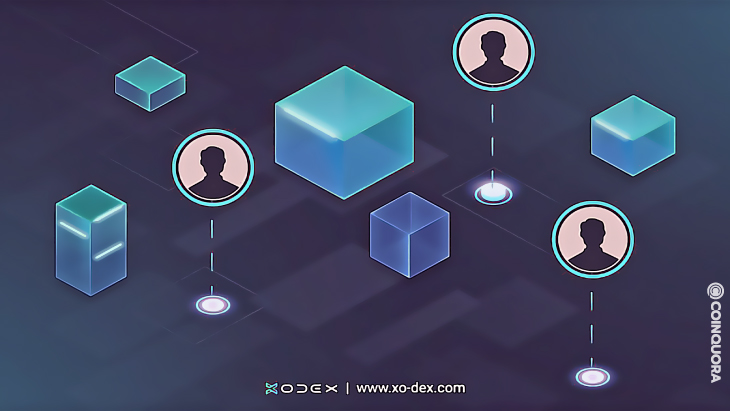- The PoW scrutiny paved the way for more climate-conscious alternatives, like proof-of-stake and the new proof of authority.
- Proof of authority is a consensus algorithm that delivers efficient solutions commonly used with private blockchains.
- XODEX is another platform pioneering the proof-of-authority consensus mechanism.
Many attempts have been made to create digital money, but all failed until blockchain technology was developed. The system of recording information in a way that makes it difficult or impossible to change, hack, or cheat, was the first to be successful for its ability to remove the intermediaries like banks, solving the issue of trust.
The revolutionary technology is essentially a digital ledger of transactions duplicated and distributed across the entire network of computer systems. Each block in the chain contains several transactions, and every time a new transaction occurs on the blockchain, a record of that transaction is added to every participant’s ledger.
One of the vital components of a blockchain is which consensus mechanism it adopts. Unfortunately, the original proof-of-work (PoW) consensus mechanism, which Bitcoin uses, has come under scrutiny for its high energy usage. This paved the way for more climate-conscious alternatives, like proof of stake (PoS) and the new proof of authority (PoA) — an even more energy-efficient alternative to PoS.
Originally coined in 2017 by Gavin Wood, co-founder of the Ethereum blockchain, proof of authority is a consensus algorithm that delivers efficient solutions commonly used with private blockchains. Using this method, machines earn the right to generate new blocks by passing a strict vetting process, resulting in trustworthy validation machines protecting PoA blockchains.
Instead of tokens like PoS, network participants of PoA stake their identity and reputation. In recent years, PoA has become one of the more prominent consensus mechanisms as the blockchain world has increasingly been exploring ways to move beyond proof of work.
The proof-of-authority model is scalable. It is based on a small number of block validators. The VeChain blockchain is an example of a popular platform that uses the PoA algorithm, where preapproved validators use software to organize transactions into blocks. In addition, the process is automated, meaning validators don’t need to monitor their computers.
XODEX is another platform pioneering the proof-of-authority consensus mechanism. The platform is passionate about finding balance, innovation, and equity building by decentralizing and eliminating cumbersome, slow, and restrictive means, CEX, banks, and exchange rules.
According to its whitepaper, the startup wants to “solve the problems in the current blockchain-based projects” through its anonymous ecosystem. One of its solutions is providing decentralized and P2P services with no middlemen, providing more security for users and direct access to funds.
Ultimately, XODEX aims to offer high transaction throughput through its incredibly high transaction speed, fast transaction finality, and zero fees. Furthermore, its proof-of-authority consensus combines decentralization with streamlined, scalable, and environment-friendly transaction processing. It will also allow users to engage with DeFi protocols, NFT projects, dapps, GameFi, and the metaverse.
Proof of stake, proof of work, and proof of authority are among the most widespread consensus mechanisms. Although they all are secure, PoA seems to prevail regarding power usage and energy consumption. In addition, its limited number of validators makes it highly scalable and gives higher transaction speed, representing the most suitable choice of permissioned or private blockchain.


